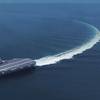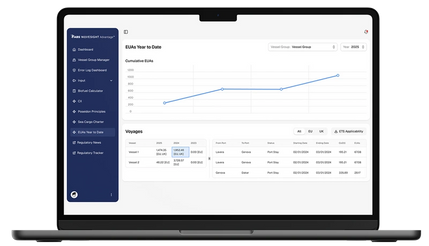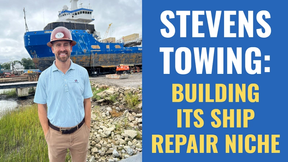Maritime Training: Training for a Brain Built on Instant Answers
In a previous article, we explored how shrinking attention spans demand new approaches to training. But atten-tion is only part of the story. Memory itself is changing. Today’s mariners, like the rest of us, live in a world of instant answers, with tools like Google, Siri, and now AI agents and copilots. Instead of storing knowledge, the reflex is often to look it up. This profound shift changes what training should emphasize. Rather than focusing exclusively on rote memorization, maritime training must now strengthen applied judgment, critical thinking, and the ability to act decisively when time is short.
The Changing Role of Recall
Generations of mariners were trained to commit vast amounts of information to memory. Today’s reality is different. Information is everywhere, always available, and instantly searchable. But at sea, you may not have the luxury of time, or connectivity. In a man-overboard situation, there is no time to consult a manual. Immedi-ate, instinctive action is non-negotiable. At the same time, expecting a mariner to memorize every technical de-tail of a modern marine engine is unrealistic.
Training, therefore, must distinguish what must live in muscle memory from what can be reference-driven.
What Must Be Muscle Memory
Certain skills and knowledge must be automatic. Emergency signals, lifeboat launching steps, fire response pro-cedures, and man-overboard recovery actions need to be drilled until instinctive. When seconds mean the difference between rescue and tragedy, hesitation is not an option. These are the areas where repetition and rote memorization remain essential.
Lessons from Aviation
Aviation offers a useful parallel. Pilots and copilots spend countless hours practicing emergency responses until first actions are instinctive. But when something unusual occurs, like an engine malfunction outside the norm, or cascading system failures, they do not rely on memory alone. They turn to a checklist designed by engineers and regulators, refined through years of simulation and real-world incidents. Even under immense pressure, the checklist ensures no critical step is missed.
The maritime industry has its equivalents, from SOLAS-mandated procedures to ISM Code documentation. But unlike aviation, where the checklist is standardized and actively used, mariners may not have equally quick ac-cess to structured, practical guidance when an emergency hits.
Training for a Blended Model
This evolution requires trainer to ask new questions:
- Which procedures must be instinctive, requiring practice until automatic?
- Which can be supported with reference materials, provided they are instantly accessible?
- How can drills combine instinctive first actions with the guided steps of an emergency?
By making these distinctions explicit, training programs can direct effort where it matters most. Muscle memory handles immediate response. Structured guidance ensures complex tasks are carried out without oversight. To-gether, they create a safety net that supports both speed and accuracy.
Looking Ahead
Mariners don't just need knowledge; they also need judgment. They must know when to act on instinct and when to slow down and follow structured guidance. Training for the future should embrace this blended model, combining hardwired responses with accessible checklists or digital tools. This will require addressing the logis-tical challenge of creating and distributing rugged, standardized guidance that can be instantly accessed when it matters most.
If aviation can rely on checklists to safeguard lives in the sky, the maritime industry can benefit from the same mindset at sea. The lesson is clear: muscle memory and structured guidance are not in competition. They are complementary, and together they give mariners the best chance of responding effectively when it matters most.
Thank you for reading, and until next time, sail safely!












